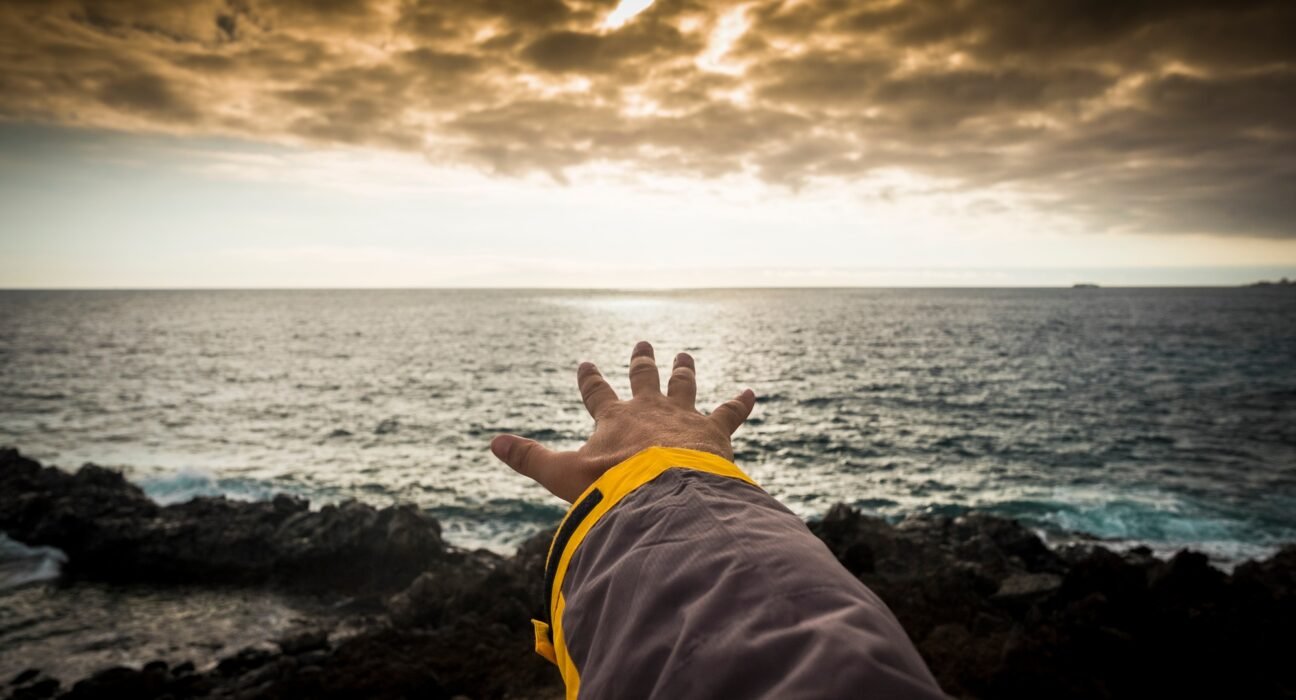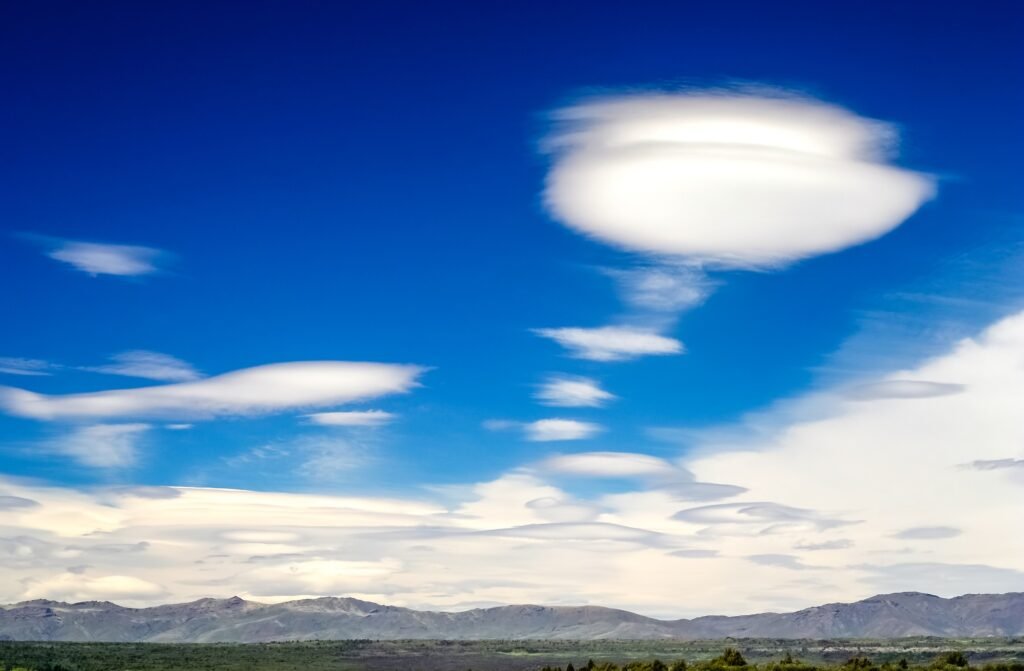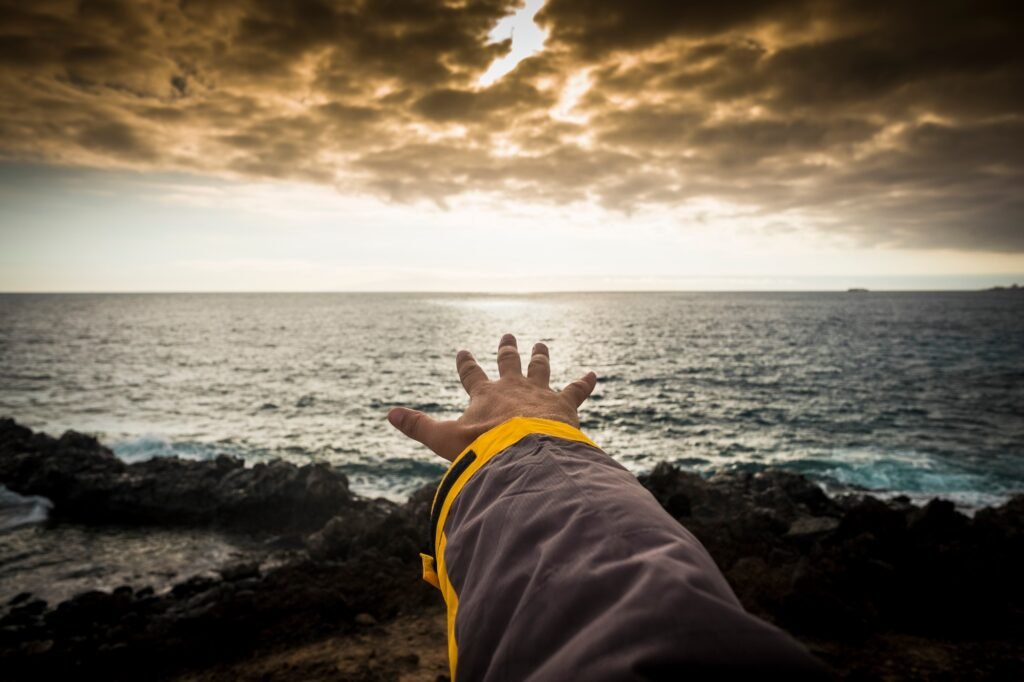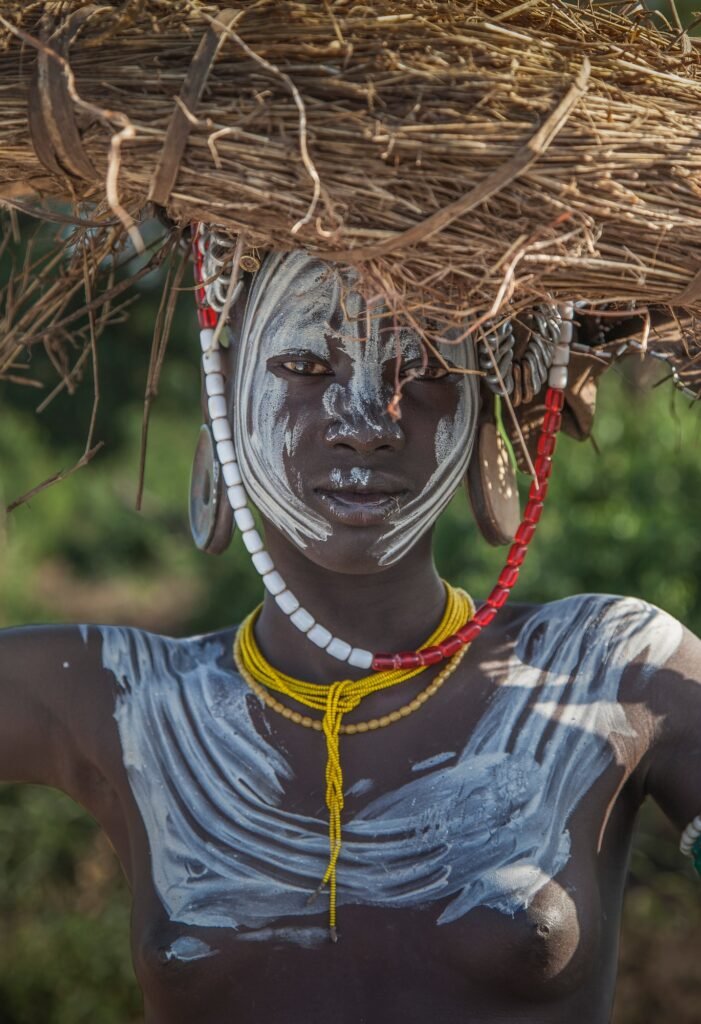What Is a Mankunawabu? Unveiling the Spiritual and Social Leaders of the Kiwai People [2025 Guide]

In many indigenous cultures, true leaders do more than set rules—they keep traditions alive and connect their people to the spirit world. The mankunawabu stands out as one of these rare figures. Wrapped in mystery, this leader guides the Kiwai people not only through daily challenges but also acts as a bridge to their ancestors, rituals, and stories that reach back centuries.
The mankunawabu carries knowledge and wisdom that shape both spiritual practices and daily decisions. This role reaches beyond what most think of as leadership, weaving respect, trust, and a deep sense of duty into every act. By learning about the mankunawabu, you begin to understand how culture, faith, and community blend to create powerful bonds among the Kiwai.
Watch a related video on YouTube
Defining Mankunawabu: Origins and Meaning
Understanding what “mankunawabu” means gives depth to this unique leadership role among the Kiwai people of Papua New Guinea. The title itself is rich with history and carries a weight that stretches beyond simple translation. In the next sections, we’ll explore the roots of the word, its significance, and how this title acts as a thread holding spiritual, social, and historic elements of the Kiwai together.
 Photo by Faris Munandar
Photo by Faris Munandar
Linguistic and Cultural Roots
The word “mankunawabu” comes directly from the languages of the Kiwai, an indigenous group settled along the Fly River in Papua New Guinea. In Kiwai culture, names and titles are rarely given without deep meaning. Mankunawabu combines references to both the seen and unseen worlds, echoing the interconnectedness valued within these communities.
- The Kiwai treat names as a source of power.
- Words are chosen for their ability to invoke respect for ancestral customs.
- The mankunawabu title signals spiritual authority and a duty to carry ancient law.
This deep respect for names is echoed in many indigenous traditions across Papua New Guinea. If you’d like to learn more about the diversity and depth of Papuan culture, check out this overview of the culture of Papua New Guinea.
Connection to Ancestry and the Spirit World
The mankunawabu plays a special role as a living link to ancestors. This is more than a figurehead or religious official. The title tells the community that this person is trusted to speak with the spirits, interpret signs, and keep the balance between the living and the ancestral world.
- They preserve oral histories and origin stories.
- Their advice shapes rituals, festivals, and community choices.
- The position is inherited or earned based on wisdom, not just family ties.
Mankunawabu help decide how myths and memories get passed down. This ensures each new generation stays rooted in old beliefs, even as times change. In many ways, they act as a bridge to both the past and the future.
Social Leadership and Historic Continuity
Holding the title of mankunawabu means shouldering social duties alongside spiritual responsibilities. They maintain tradition, settle disputes, and guide the community during crisis or celebration. Their influence blends old customs with present needs.
- Trusted to resolve conflict using traditional law.
- Serve as advisors in village matters.
- Lead through ceremony and storytelling.
This unique authority has allowed Kiwai villages to keep strong identities while adapting to change. The mankunawabu is not only a religious leader, but also a social guardian and historian for the people.
As Papua New Guinea is known for its strongly rooted traditions and community-based leadership, the role of the mankunawabu illustrates how ancient customs can thrive alongside modernity. To see how these customs play out across different tribes, explore more about indigenous tribe life in Papua New Guinea.
Spiritual and Cultural Authority of Mankunawabu
Every Kiwai village relies on the steady hand of the mankunawabu when the lines between the ordinary and the sacred blur. As mediators, they do much more than guide community life—they protect knowledge, traditions, and serve as the trusted link between the present and the spiritual world. Below, we explore the rituals, ceremonies, and ways the mankunawabu ensures that ancestral knowledge endures across generations.
Key Rituals and Ceremonies
 Photo by Kaboompics.com
Photo by Kaboompics.com
The mankunawabu stands at the center of the most important rituals of Kiwai life. These ceremonies do more than honor tradition; they strengthen community trust and speak directly to the spirit world.
- Initiation Ceremonies: The passing from childhood to adulthood is guided by the mankunawabu. Through chants, storytelling, and symbolic acts, they lead initiates through sacred spaces and teach them the responsibilities that come with maturity.
- Rainmaking Rituals: When the balance of nature tilts—be it drought or flood—the community gathers around the mankunawabu, who calls upon ancestral spirits for aid. Using objects like drums, sacred stones, and water, the ritual seeks to restore harmony and bring the right amount of rain.
- Resource-Related Ceremonies: Before fishing seasons or the harvest, the mankunawabu ask for permission from land and river spirits. These acts remind everyone that nature is not just a resource, but a living partner in community survival.
The authority shown in these ceremonies is both spiritual and practical. The mankunawabu ensures rituals remain unbroken, forming a chain that links today’s Kiwai to generations past.
Transmission of Ancestral Knowledge
Oral tradition sits at the heart of Kiwai culture. Without a written language for much of their history, the Kiwai people rely on spoken stories, song, and even dreams to carry knowledge forward.
- Oral Tradition: Legendary tales, principles of law, and histories are memorized and repeated for decades. The mankunawabu lead these sessions, using every opportunity—from fireside gatherings to communal feasts—to teach the wisdom of ancestors.
- Teaching: The role of teacher is inseparable from that of spiritual leader. Lessons often happen through active demonstration during rituals, preparing new leaders who learn by observation and participation.
- Dreams and Spiritual Visions: Some of the most respected knowledge comes through visions and dreams. The mankunawabu interpret these messages, believing that the ancestors send warnings or blessings this way. Their skill in deciphering visions makes them trusted guides during times of change or trouble.
The process of passing down authority combines tradition, personal insight, and spiritual experience. With each story told or vision shared, the mankunawabu keep a living archive of Kiwai heritage.
To understand more about how ritual leadership maintains indigenous spiritual traditions, you can explore cultural insights on primitive peoples and natural religions, which, though from distant South America, reveal striking parallels in how elders transmit sacred knowledge.
By balancing authority in both ritual and storytelling, the mankunawabu shapes not only present action but the very sense of identity for the future.
Mankunawabu as Community Leaders
Within a Kiwai village, the mankunawabu acts as the cornerstone of decision-making and shared responsibility. Unlike typical leadership seen in urban settings, this role is about trust, wisdom, and a sense of duty shaped by generations. Community members look to their mankunawabu not just for ritual direction, but for guidance in social and environmental challenges too. Through their everyday actions, mankunawabu keep peace inside the village and protect the resources that feed and sustain everyone.
Conflict Resolution and Resource Management
Disagreements are a normal part of communal living, but the way they are resolved can define a culture. The mankunawabu is at the heart of this process, blending respect for tradition with clear-headed judgment to guide the group through disputes. Their approach offers a model of balance and fairness, instead of harsh punishment or long grudges.
- Mediation Over Force: When tensions rise between families, or over shared fishing areas and garden plots, the mankunawabu leads open discussions. Each side shares their view, and the leader listens before recommending solutions rooted in tradition and local law.
- Setting Boundaries: The mankunawabu marks boundaries for fishing, gardens, and sacred areas. This prevents overuse of riverbanks and farmland, so that everyone has a fair share without risking the group’s future food supply.
- Stewardship and Sanctions: By deciding when and where to access certain resources, the mankunawabu stops problems before they start. Sometimes, they restrict use of an area to let habitats recover, much like community-led conservation elsewhere. If rules are broken, social sanctions remind everyone of the importance of collective welfare.
This careful management has helped Kiwai villages avoid the tragedy of overuse. It keeps social trust high and restores harmony quickly after conflict.
For a broader look at how local participation shapes good resource use, see this research on local communities’ participation in decision-making processes.
Linking Social Governance to Ecological Stewardship
 Photo by José Carlos Alexandre
Photo by José Carlos Alexandre
The Kiwai live in flood-prone lands, where survival depends on reading signs from the natural world. Here, the mankunawabu is more than a rules-keeper—they help tie every social decision to a broader care for the environment. Resource management is never separate from daily life; it touches how water, crops, and forests are valued.
- Flood Response: Kiwai villages build homes on stilts and watch river levels closely. The mankunawabu uses knowledge passed from elders and ancestors to predict seasonal floods, warning families and calling for group efforts when action is needed.
- Sustainable Practices: Whether setting fishing seasons or protecting wetlands, their choices build a long-term safety net. These strategies prevent overharvesting during lean years, so natural cycles recover.
- Cultural Rules as Environmental Laws: Certain plants, birds, or stretches of river may become “off-limits” for spiritual or cultural reasons. This practice protects local biodiversity, not as a rule from outsiders, but as a living agreement inside the village.
The value of indigenous leadership in meeting climate and nature challenges is backed by global data. Indigenous governance, like that provided by the mankunawabu, has been recognized as central to healthy ecosystems worldwide. To understand how this know-how boosts ecological resilience, see the article on why Indigenous knowledge is crucial in the fight against climate change.
In the Kiwai context, social order and ecological stewardship are tightly linked. The guidance of the mankunawabu helps keep both the community and its land in balance, reinforcing the truth that strong leadership and environmental care go hand-in-hand.
Modern Challenges and Preservation Efforts
The tradition of the mankunawabu faces serious risks today, pressed from all sides by changing laws, land pressures, cultural shifts, and a shifting environment. In the past these leaders stood at the center of Kiwai life, but now outside forces try to rewrite the rules, test local beliefs, and shift cultural identity. The future of the mankunawabu depends on how both communities and allies rise to meet these challenges.
Pressures from Modern Governance and Land Disputes
As Papua New Guinea develops and modern legal systems spread, the old authority of traditional leaders is often pushed aside. This means local decision-making, once guided by elders and community law, gets replaced or weakened by national governance and courts. Land disputes, fueled by logging, mining, and outside interests, put serious pressure on the Kiwai way of life.
- The rise of state-sponsored structures means custom-based law can be sidelined.
- Young people sometimes trust outside leaders more than village elders.
- Land boundaries, long governed by oral history, are now re-drawn on paper, inviting disputes.
These changes often lead to more arguments over who owns which land or has fishing rights. According to a report from the International Work Group for Indigenous Affairs, such disputes and tensions put added strain on traditional leaders like the mankunawabu, risking a loss of trust and authority in their own communities. To understand the latest on threats against indigenous authority, check out The Indigenous World 2025: Papua New Guinea.
The Impact of Environmental Change
 Photo by Jon Champaigne
Photo by Jon Champaigne
Kiwai islands and riverbanks face environmental threats not only from industry, but also from unpredictable weather and rising floods. As the land shifts, so do the customs tied to it. The mankunawabu, once respected stewards of an abundant environment, now work harder to keep old wisdom useful when the land itself behaves differently.
- Bigger storms and erratic rainfall can wipe away familiar boundaries and marks.
- Rituals for good harvest or safe travel become harder to predict and perform.
- Knowledge passed down for generations might not match the pace of climate change.
United Nations projects in Papua New Guinea now study how communities like the Kiwai respond, blending ancient insight with weather forecasts to prepare for the future. You can learn more about how climate impacts daily life and peacemaking from this UNDP profile on the peacemakers of Papua New Guinea.
Cultural Shifts and the Pull of the Modern World
The lure of city life, schooling outside of the village, and exposure to global media all challenge the core values held by the Kiwai. Mass communication means younger people grow up hearing different stories, sometimes doubting the rituals and authority of their elders.
- Urban migration reduces the number of tradition-keepers in the village.
- School curriculums rarely teach local knowledge or respect traditional roles.
- Phones and social media expose Kiwai youth to distant perspectives and values.
This shift isn’t just about losing skills—it’s about changing what people believe is important. Imported ideas can sometimes cast old rituals as “backwards,” even if they are the glue that holds the community together.
Community and Academic Initiatives to Safeguard Tradition
Even as outside pressures build, Kiwai people and their allies are not standing still. Community-led projects, often with help from researchers and NGOs, are working hard to keep traditions strong and meaningful.
- Oral histories are being recorded so new generations don’t lose them forever.
- Village gatherings now include talks on why traditional law matters, bridging old and new knowledge.
- International partners help protect sacred sites and promote education about local customs.
Academic teams and cultural organizations worldwide are also sharing what works for other indigenous groups. The EBSCO resource on preservation of indigenous cultures details practical steps for keeping traditions alive, from language documentation to mentorship programs.
Efforts like these don’t just preserve relics—they keep the mankunawabu’s wisdom in everyday life, where it still matters most. For deeper ideas about protecting heritage, read about cultural heritage preservation for indigenous communities, which spotlights how similar struggles play out worldwide and what steps protect both people and traditions.
By acting together, Kiwai communities show that tradition can grow and adapt, facing the future while honoring the past.
Conclusion
The mankunawabu stands as a living connection to culture, nature, and ancestral wisdom for the Kiwai. Their leadership shines as a model for upholding responsibility, fairness, and deep care for the land and people. These qualities are vital to any community facing change or uncertainty.
Traditional knowledge, as guarded and practiced by leaders like the mankunawabu, carries insights that speak directly to today’s social and environmental challenges. The Kiwai show us that honoring the past is not just about memory—it can shape decisions that protect both people and place.
Every society can learn from this example. Consider how much stronger a community becomes when it listens to those with deep roots, respects the balance of nature, and values the lessons handed down through time.
Thank you for exploring the story of the mankunawabu. If these ideas strike a chord, share your own thoughts or reflect on how traditions in your life offer guidance for the future.







![What Is a Mankunawabu? Unveiling the Spiritual and Social Leaders of the Kiwai People [2025 Guide]](https://mankunawabu.com/wp-content/uploads/2025/07/woman-of-the-mursi-tribe-omo-valley-ethiopia-150x150.jpg)
![What Is a Mankunawabu? Unveiling the Spiritual and Social Leaders of the Kiwai People [2025 Guide]](https://mankunawabu.com/wp-content/uploads/2025/07/strange-looking-clouds-150x150.jpg)